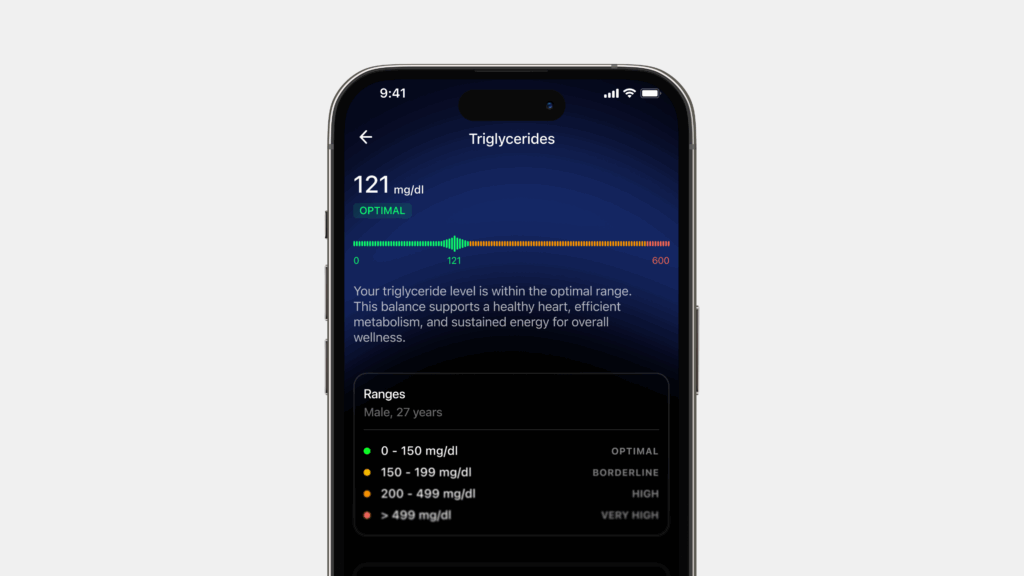Testosterone and blood glucose levels go hand in hand in your body. Studies reveal that men with low testosterone are at a higher risk of developing type 2 diabetes at later stages in life. Beyond its role as a sex hormone, the regulation of testosterone levels has been connected with other health conditions like metabolic syndrome and being overweight. The scientific community is trying to unravel the ways in which testosterone impacts the overall well-being of men.

Highlights
- Testosterone is a type of androgen – a hormone that supports growth and reproduction in both men and women, which is essential for the development of masculine characteristic features,
- Insulin resistance is a condition wherein the body is unable to respond to the insulin released by the pancreas,
- Hypogonadism is a condition in which insufficient or no sex hormones are generated by the sex glands.
What is Testosterone?
Testosterone, a predominant hormone found in men, is responsible for the development of male characteristics. It also affects body mass, muscle strength, fat metabolism, bone density and behavioural traits. Also known as the male sex hormone, testosterone is required to produce sperm in males. This hormone is present in both men and women, though at much higher levels in the former. In women, it affects bone health, breast health and fertility.
Testosterone is a type of androgen – a hormone that supports growth and reproduction in both men and women, which is essential for the development of masculine characteristic features, like male genital organs, facial hair, male pattern deepening of voice and muscle development. Testosterone also helps maintain the libido in post-menopausal women. Women who have high levels of testosterone may complain of irregular periods and increased body hair growth and muscle mass.
Understanding Hyperglycemia and Hypoglycemia
Before exploring the connection between blood glucose levels and testosterone, let’s understand what hyperglycemia – high blood sugar and hypoglycemia – low blood sugar signal.
- Hyperglycemia: It is a metabolic condition where blood glucose levels rise beyond normal levels. Blood glucose is the body’s primary source of energy, which we get from food. In a healthy body, the blood glucose level spikes after each meal. To combat this, our pancreas releases a hormone called insulin. Insulin aids in regulating the blood glucose level by helping the muscles, liver and fat cells absorb the glucose for energy. But, when the body fails to produce enough insulin or use the insulin produced, the glucose remains in the bloodstream instead of being absorbed by the cells. This is called hyperglycemia, a condition characterised by high blood glucose levels in the human body.
- Hypoglycemia: is a condition where blood glucose levels are lower than normal. It may be caused by medications, testosterone therapy, infections, insulin overproduction, and hormone deficiencies. If left untreated, hypoglycemia can lead to seizures, loss of consciousness, and even sudden death.
Hyperglycemia and Testosterone
Blood sugar levels or blood glucose levels need to be within the normal range for the proper functioning of your body. When your blood glucose levels are high, your pituitary gland is unable to produce the luteinising hormone in an adequate quantity. The luteinising hormone is required to control and trigger ovulation and maintain the menstrual cycle. It is also required to produce testosterone in the testicles.
Without the luteinising hormone, the testicles cannot produce enough testosterone, thus causing a drop in their levels. Insulin resistance is a condition wherein the body is unable to respond to the insulin released by the pancreas. This results in elevated blood glucose levels. When there is insulin resistance in the body, the pancreas tries to work harder to ensure adequate insulin production. With time, as demand keeps increasing, supply falls short. Consequently, the blood sugar levels in the body continue to rise.
Low testosterone levels are correlated with the development of insulin resistance. It has been found that men with inadequate testosterone usually exhibit insulin resistance and are more susceptible to the risk of diabetes. Testosterone facilitates the absorption of blood sugar by the body tissues as a reaction to insulin.
Normal Testosterone Levels: The normal range of testosterone in males is about 270–1070 ng/dL.
Men with low testosterone levels may experience the following symptoms
- Low sex drive
- Difficulty with erection
- Decreased semen volume
- Premature hair loss
- Fatigue
- Loss of muscle mass
- Increased body fat
- Decreased bone mass
- Mood changes
- Affected memory
- Smaller testicle size
- Anaemia
Effects of testosterone on Visceral Fat
Body fat is usually stored as subcutaneous fat or as visceral fat. Increased visceral fat increases the risk of developing diabetes or heart disease. In men, testosterone levels need to be adequate enough to maintain healthy fat distribution in the body. Conversely, men also need to maintain healthy body fat distribution to regulate this hormone. Visceral fat hampers testosterone production in the body. The excess abdominal fat further reduces testosterone production and increases that of estradiol—a female reproductive hormone—in men. And this becomes a vicious cycle. Increased production of estradiol in men can lead to the development of added fat storage in different parts of the body. Some men develop gynecomastia (presence of breast tissue in men) due to the increase in estradiol.
Adiposity even lessens the sex hormone-binding globulin, which transmits testosterone in the blood. Testosterone is converted to estrogen by fat cells, causing a further decline in its levels. When there is a drop in testosterone, there is a corresponding decline in muscle mass too. This in turn enhances insulin resistance, followed by an increase in blood sugar. Low levels of testosterone are linked to an increase in the storage of visceral fat, which is also a huge risk factor for type 2 diabetes. Conversely, when the blood sugar levels are high, the body’s testosterone levels drop.
Hypogonadism
Hypogonadism is a condition in which insufficient or no sex hormones are generated by the sex glands. In male hypogonadism, this hormone is testosterone. It can occur as a congenital defect or develop later in life due to an injury or infection. This condition can be treated with testosterone replacement therapy. Studies have shown that hypogonadism has an intimate correlation with the development of diabetes.
Low testosterone and high blood glucose can cause erectile dysfunction. Erectile dysfunction, a common symptom of reduced testosterone, is the inability to get an erection in males. Sometimes, you may experience an erection but be unable to maintain the firmness required for sex. This is often caused by high blood glucose levels or stress. The high blood glucose levels damage your blood vessels, thereby affecting the blood flow to the penis. Sometimes, poor blood glucose control can damage your nerves as well. The increase in blood glucose levels reduces your testosterone levels and, in some cases, even the desire to have sex. Erectile dysfunction is also caused by atherosclerosis or the stiffening of arteries, which in turn is caused by low testosterone and high blood sugar.
Six tips to improve Testosterone levels
Here are some ways you can improve your testosterone levels naturally:
1. Get moving: Exercise of any kind is essential for good health. Studies show that moderate-to high-intensity exercises with shorter resting intervals increase testosterone production in both men and women. This regulates your blood sugar levels and improves your insulin sensitivity. Increased activity also boosts testosterone production and aids in weight loss. Walk for about 30–45 minutes daily and get your testosterone levels back to normal.

2. Watch your diet: A healthy diet of whole carbs, fibre, lean proteins, fruits, and vegetables helps maintain your body’s hormonal levels. Further, studies suggest that avoiding processed and high-fat foods helps in keeping your blood glucose levels in check.
3. Limit your alcohol intake: Reducing your alcohol intake helps improve your testosterone levels. When you drink less alcohol, your insulin sensitivity increases, regulating your blood sugar and testosterone levels.
4. Avoid smoking: Any kind of tobacco consumption, including smoking cigarettes, impacts your libido. It prevents you from getting aroused. Smoking affects your arteries by making them narrower and restricting blood flow. Nicotine also makes your body resistant to insulin and increases your blood sugar levels, leading to a decrease in testosterone.

5. Sleep well: Adequate good sleep has a huge impact on your testosterone levels and your body’s sensitivity to insulin. Lack of sleep is one of the primary contributors to obesity, high blood glucose, low sex drive, inactivity, and sour moods.
6. Get some sun: Research has shown that Vitamin D may work as a natural testosterone booster. Soak up some sun in the early morning hours and add foods rich in Vitamin D, like mushrooms and fatty fish, to your diet.
Conclusion
Testosterone, the male sex hormone, is created in the testicles. Research shows that a low level of testosterone can be a predictor of many health conditions, like metabolic syndrome, insulin resistance, and obesity, in men. Studies suggest that low testosterone levels are correlated with high blood sugar and an increased risk of diabetes. Testosterone is also inversely related to visceral fat. Erectile dysfunction is a common symptom of low testosterone, and hypogonadism—an extreme case of sparse testosterone—is also a risk factor in the development of type 2 diabetes. Exercise, moderate alcohol intake, Vitamin D, and adequate and quality sleep are some ways to address testosterone deficiency.
Disclaimer: The contents of this article are for general information and educational purposes only. It neither provides any medical advice nor intends to substitute professional medical opinion on the treatment, diagnosis, prevention or alleviation of any disease, disorder or disability. Always consult with your doctor or qualified healthcare professional about your health condition and/or concerns and before undertaking a new health care regimen including making any dietary or lifestyle changes.
References
- How Blood Sugar Levels Affect Your Testosterone & Sex Drive – Diabetes Strong
- The effect of testosterone supplement on insulin sensitivity, glucose effectiveness, and acute insulin response after glucose load in male type 2 diabetics
- Relationship Between Testosterone Levels, Insulin Sensitivity, and Mitochondrial Function in Men | Diabetes Care
- Could testosterone therapy benefit men with type 2 diabetes?
- Testosterone therapy associated with type 2 diabetes remission in men with hypogonadism








